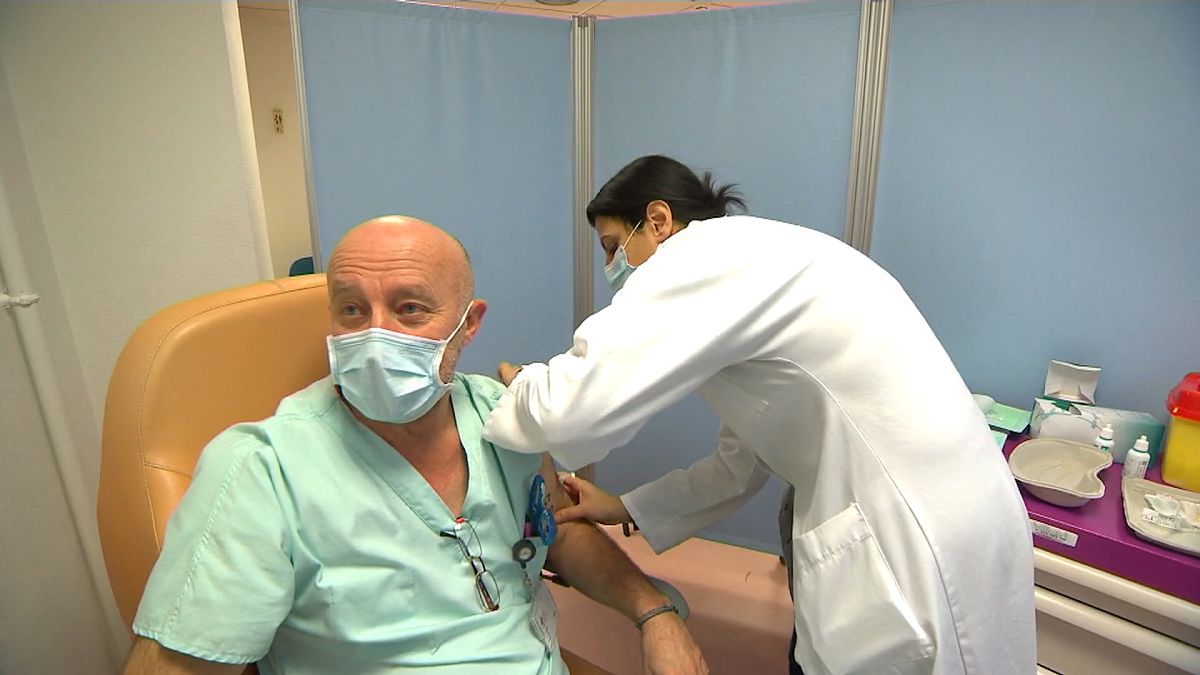Review 2021: a year of highs and lows in the battle against COVID-19 - the pandemic that changed the world
January 2021, one year after the first person died from Covid-19, most of Europe is in lockdown and restrictions are tightened.
The hopeful news is the authorisation by the European Medicines Agency (EMA) of the Biontech Pfizer, Moderna, and AstraZeneca vaccines.
First in line to be vaccinated are health care workers and the frailest of the elderly, but the vaccination campaign in the EU starts sluggishly, stalled by disruptions in supply.
Hopes dashed by Delta
In fact, the pandemic, far from fading out, is only just beginning.
A new variant, named Delta, is detected in India in late 2020. It's more transmissible and engulfs the country in a second deadly wave.
The hospitals are overrun and there are not enough oxygen cylinders.
Delta spreads rapidly across the world.
Living with coronavirus
In June the European Parliament gives the green light to the EU Digital Covid Certificate.
It proves the holder is vaccinated, has recovered from a COVID infection, or has had a recent negative test result.
The goal is to facilitate free movement. Over time most European countries introduce a health pass and make it obligatory to enter most leisure venues.
Liberty versus safety
In protest, tens of thousands of people take to the streets in major European cities.
They march against the health pass and vaccine mandates.
The anti-vax movement feeds on a wider distrust of governments and on conspiracy theories peddled online, mostly by far-right organisations.
The path to freedom
Restrictions all over Europe are gradually lifted, Great Britain celebrates in July with the so-called "Freedom Day".
The mood lifts and by the end of August the EU reaches a milestone - 70% of adults are fully vaccinated.
Nevertheless, there are warnings of celebrating too early.
"But the pandemic is not over, and we must remain vigilant," warns Ursula von der Leyen, President of the European Commission. "So first of all, we need many more Europeans to vaccinate rapidly to avoid a new wave of infections and to stop the emergence of new variants."
One step forward two steps back. By Autumn, Europe once again becomes the epicentre of the pandemic.
Covid-19 cases soar dramatically in Eastern European countries, where vaccination rates are low, but also Germany and Austria struggle with the virus.
The vast majority of patients in intensive care are unvaccinated.
The ever-changing virus
Then the Omicron variant, a new potentially even more dangerous mutation of Covid 19, is identified in South Africa.
President Cyril Ramaphosa says it should be a wake-up call that vaccine inequality can not be allowed to continue.
The existing vaccines provide some protection against Omicron but the new variant spreads even more easily than Delta.
By the end of 2021 countries are once again racing to give booster jabs and scientists are searching for more effective vaccines.
It seems the race is far from over.
